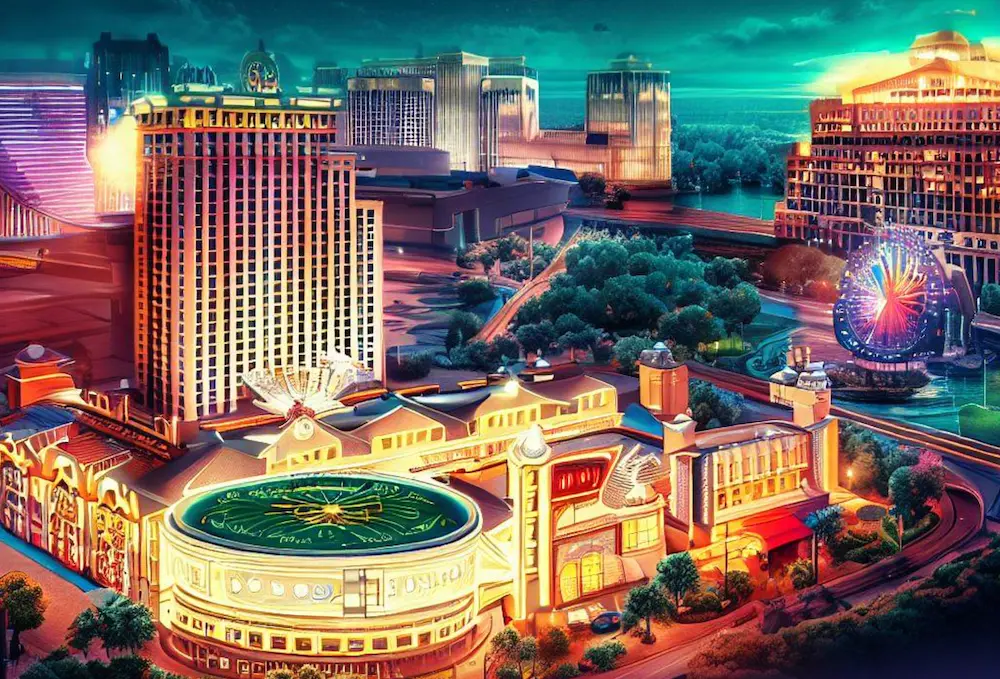The fascinating Development of Gambling Pastimes Through the Ages

Casino experiences have captivated players over the ages, evolving from basic recreational activities to complex experiences that blend luck, skill, and entertainment. From the early beginnings of gambling in cultures like ancient Mesopotamia and Rome to the glitzy corridors of contemporary casinos, the history of these games shows much about human nature and our connection with risk. As societies have intertwined and innovation has progressed, casino games have evolved, reflecting societal changes and developments in gameplay.
The primitive versions of gambling likely featured simple games involving dice and betting on the outcomes of sports competitions. Through the years, these basic forms of gambling grew into more complex games like playing card games, the roulette wheel, and the variety of slot games that populate the floors of casinos today. Each era brought its unique rules, aesthetics, and social relevance. At present, casino games persist in evolving with the rise of online platforms, enabling players from various parts of the world to engage in a shared experience, further fusing the traditional with the modern era.
Initial Roots of Gambling Activities
Gaming games have origins that reach back to historical societies, where betting was strongly integrated in social traditions and social rituals. The initial known instances of gambling emerged in Mesopotamia around three thousand BC, featuring simple dice games made from bone material. These early activities laid the foundation for more complex gambling games, showing humans' instinctive urge to pursue fortune and entertainment through chance.
As civilizations evolved, so did their gambling pursuits. In early China, around two thousand three hundred BC, tiles were discovered that were similar to early basic forms of a lottery game activity. More organized instances of gambling arose in the Roman civilization, where games of chance were a popular pastime, often taking place in social events. The Romans developed multiple betting games, which composed dice and board activities, illustrating the widespread nature of betting across various economic classes.
With the flow of time, these early activities contributed to the development of contemporary gambling activities. In the Middle Ages, playing card activities grew prevalent in European culture, paving the way for the professional gaming establishments we know today. The shift from informal betting to organized gambling in taverns and private houses marked a significant shift in how people interacted with games of chance, leading to the eventual creation of casinos as dedicated places for gambling.
The Rise of Modern Gambling Industry
The final 20th century marked a significant transition in the field of gaming, propelled by tech innovations and transformations in societal views towards gambling. The emergence of personal computers and the internet transformed the way players engaged with their beloved gaming experiences. Virtual casinos emerged, allowing players to enjoy timeless table games like Texas Hold'em and 21 from the safety of their houses. This emerging online environment not only broadened access to casino games but also drew in a younger audience who found the comfort and variety attractive.
As digital gaming gained momentum, so did advancements in casino tech. The creation of high-quality programs and visual elements changed conventional gambling games into engaging adventures. Players could now interact with authentic dealers through live feeds, importing the feel of physical casinos directly into their homes. This blending of live gaming with online platforms created a new hybrid model that enhanced the community element of gambling, allowing it possible for individuals to engage and compete with fellow gamers around the world.
Moreover, the growth of gaming on mobile devices substantially changed the casino landscape. With the widespread use of mobile phones and touch devices, players can play their beloved gaming options anywhere, anytime. Mobile apps offer a extensive range of options customized for touchscreens, catering to the busy daily life of contemporary gamers. This easy access has resulted in growing participation in casino games, driving the rapid expansion of the gambling sector. As a result, the outlook of gambling continues to progress, adjusting to technological advancements and shifting player expectations.
How Technology Influences Casino Games
Technology's advancement has significantly transformed casino games, improving the overall gaming experience for players around the world. With the introduction of the internet, online casinos were created, allowing players to enjoy their favorite games from the comfort of their homes. This shift not only made casino games more available but also expanded the variety of games offered, as online platforms could host numerous variations of traditional games without the limitations of physical casinos.
The rise of mobile technology further revolutionized the casino gaming landscape. bookies not on GamStop As smartphones and tablets became widespread, players can to play casino games anytime and anywhere. This mobility has resulted in the development of dedicated mobile applications and optimized websites that provide seamless gaming experiences. Additionally, innovations such as live dealer games have delivered the authentic atmosphere of a casino into players' homes, connecting between physical and online gaming.
Furthermore, advancements in artificial intelligence and virtual reality are paving the way for the next generation of casino games. AI enhances game design and player interaction, creating tailored experiences based on user behavior and preferences. Meanwhile, virtual reality provides immersive environments where players can interact in a simulated casino setting, making the gaming experience more exciting and realistic. As technology continues to evolve, the future of casino games looks promising, filled with endless possibilities for advancements and entertainment.
